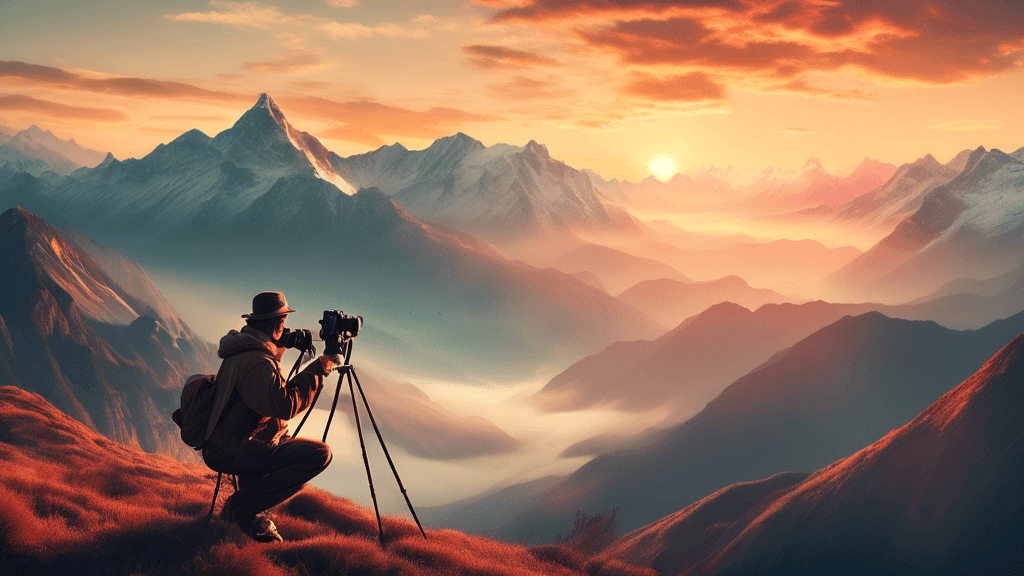
Shaping Perceptions: The Impact of Landscape Photography on Our View of Nature
Share
Introduction to Landscape Photography and Its Influence
Landscape photography, a genre as timeless as photography itself, has the unique power to shape how we perceive and appreciate the natural world. But why exactly does landscape photography hold such influential sway over our view of nature? And how can photographers harness this power to impact environmental conservation positively?
The Psychological Impact of Viewing Landscape Photography
Visual imagery, particularly photography, has a profound impact on human psychology. It can evoke emotions, influence opinions, and inspire action. Landscape photography, with its captivating scenes of the natural environment, directly taps into our innate connection to the earth. Have you ever wondered why a photograph of a serene forest or a majestic mountain range can evoke feelings of peace and awe? This connection goes beyond mere aesthetics.
The Role of Neuroaesthetics
Neuroaesthetics, a field of neuroscience research that studies the impact of aesthetic experiences on the brain, helps explain our strong emotional reactions to landscape photography. When people view images of nature, specific patterns of brain activity are associated with feelings of joy, relaxation, and revitalization. This suggests that landscape photography can play an essential role in mental health, offering a digital form of nature therapy.
Communicating Environmental Messages Through Photography
Landscape photography does more than just please the eye; it can also be a potent tool for environmental advocacy. By presenting the beauty of unspoiled landscapes alongside the stark visual evidence of environmental destruction, photographers can make a compelling case for the conservation of natural spaces.
Examples from Renowned Photographers
Consider the work of Ansel Adams, whose iconic black-and-white images of the American West not only helped establish photography as a fine art but also played a part in advancing the environmental movement in the United States. Adams' photography is widely credited with inspiring the expansion of the National Park Service and raising awareness about the importance of natural preservation. His quote, We don't inherit the earth from our ancestors; we borrow it from our children, reflects this deep environmental commitment.
Another impactful photographer, Sebastião Salgado, has utilized his talent to document the devastating impacts of deforestation and mining. His images serve as a stark reminder of the consequences of human activity on the natural world, urging viewers towards a more sustainable interaction with the planet.
Landscape Photography as a Tool for Education and Conservation
Given its power to influence and inspire, landscape photography is an invaluable educational tool. It can bring distant environments to the forefront of public consciousness, making the abstract concept of environmental issues tangible and urgent.
Incorporating Photography in Environmental Education
By integrating landscape photography into educational curriculums, we can enhance awareness and appreciation of natural environments from an early age. Photographs can serve as a starting point for discussions about geography, biology, and ecology, making learning a more immersive and engaging experience.
Moreover, photographers themselves can contribute to conservation efforts by participating in or initiating projects that aim to protect and preserve natural landscapes. Such initiatives not only help to safeguard these areas but also ensure that they will continue to inspire and teach future generations.
Conclusion: The Continuing Role of Landscape Photography in Shaping Perceptions
Landscape photography holds an undeniable power in shaping our perceptions of the natural world. It connects us to parts of the planet we might never visit and emphasizes the importance of preserving these landscapes for future enjoyment and ecological stability. In a world where environmental issues increasingly demand our attention, photographers have an essential role in capturing the beauty of nature and advocating for its protection.
Are you a photographer, educator, or someone passionate about nature? Consider how you can use or support landscape photography to inspire greater appreciation and proactive conservation of our invaluable natural environments.





